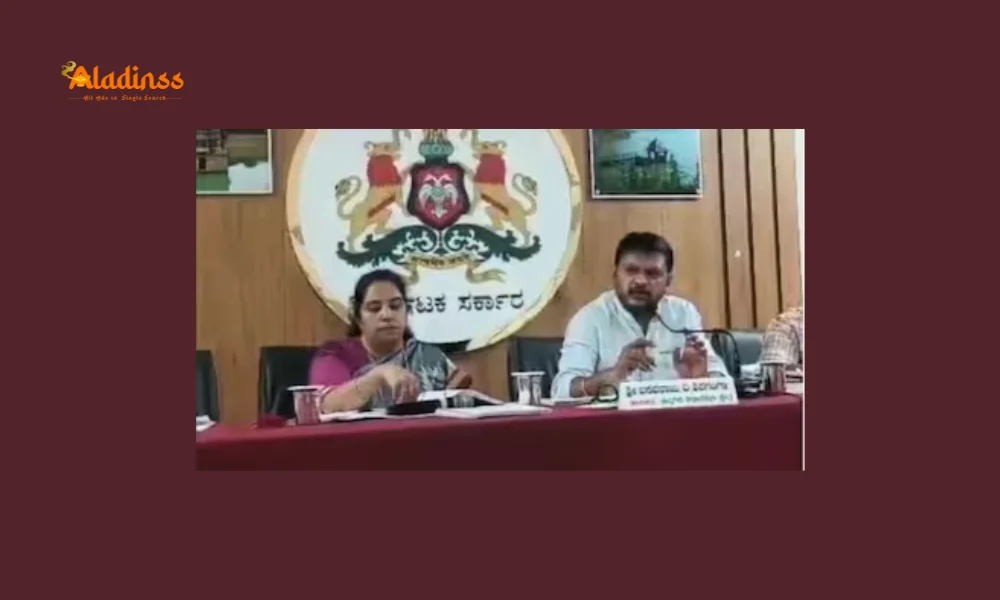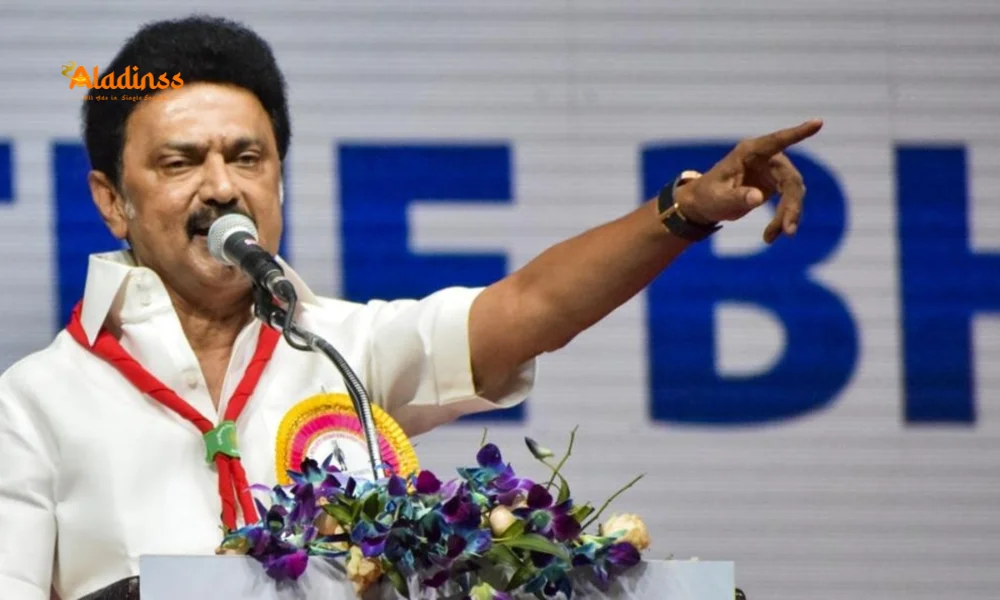Karnataka MLA's Pregnancy Excuse Remark Sparks Row

Karnataka MLA's Sexist Pregnancy Remark Ignites Fury Over Women's Workplace Rights
A shocking Karnataka MLA controversy has erupted after Congress legislator Shivaganga Basavaraj from Channagiri publicly shamed a pregnant forest range officer, branding pregnancy as an "excuse" for skipping work meetings. The sexist remark, made during a routine Karnataka Development Programme review on October 15, 2025, has sparked widespread outrage, with women's rights activists decrying it as a blatant attack on maternity entitlements and professional equity. As videos of the tirade go viral, the incident underscores persistent gender biases in Indian public discourse, especially amid recent progressive policies like the state's new menstrual leave provision.
Basavaraj's outburst targeted officer Shweta, who cited medical needs for her absence, prompting the MLA to question her commitment and demand immediate departmental action. This Karnataka MLA pregnancy remark has not only humiliated the officer but also fueled demands for accountability from the Siddaramaiah administration, with the BJP poised to weaponize it in upcoming legislative sessions. Social media is ablaze with condemnations, highlighting how such rhetoric undermines women's empowerment initiatives in a state striving for gender parity.
The controversy arrives just days after Karnataka's landmark approval of one paid menstrual leave day per month for all working women, a move hailed as a step toward inclusive labor practices. Yet, Basavaraj's comments reveal deep-seated misogyny that could erode public trust in these reforms, prompting calls for sensitivity training for elected officials.

Also Read: Bihar Polls 2025: PK Out, Women Voters Key
The Incident Unfolds: A Public Shaming at KDP Review Meeting
The flashpoint occurred during a quarterly Karnataka Development Programme (KDP) session in Davangere district, aimed at coordinating local governance and conservation efforts. Forest Range Officer Shweta, in her advanced pregnancy stage, informed organizers of her inability to attend due to doctor's appointments—a common challenge for expectant mothers balancing demanding roles in forest services.
Instead of empathy, MLA Shivaganga Basavaraj unleashed a barrage of derogatory comments, captured on video and swiftly disseminated online. "If she is pregnant, she should take a leave. Why does she need to work? She wants to make money, but also when called for meetings she wants to take leave. Is there no shame?" he retorted, flanked by district officials who remained silent. Escalating further, he mocked: "There are maternity leaves, right? Till the last date she wants salary and the extras, but can't come to the meeting as soon as you ask for some work. Pregnancy is an excuse, one should feel ashamed. Every time it's the same excuse. 'I'm pregnant, I'm going to the doctor'."
Basavaraj capped his rant by ordering: "Immediate action should be taken against her," implying disciplinary measures that could jeopardize her career. The officer, a dedicated professional managing wildlife protection in a male-dominated field, became collateral in this display of patriarchal entitlement, drawing parallels to broader struggles faced by women in Karnataka's bureaucracy.
Outrage Erupts: Activists and Social Media Condemn the Sexist Remark
The video's circulation ignited a firestorm, with women's rights groups like the Karnataka Mahila Okkuta labeling the Karnataka MLA pregnancy remark as "regressive and dehumanizing." Activists argued it trivializes the physical and emotional toll of pregnancy, reinforcing stereotypes that view motherhood as a hindrance rather than a natural phase. "This isn't just an isolated slur; it's a symptom of systemic bias that discourages women from public service," said one organizer, vowing protests outside the assembly.
On X (formerly Twitter), reactions poured in, amplifying the scandal. NDTV's post garnered thousands of views, with users decrying the MLA's insensitivity. India Today's clip highlighted demands for an apology, while netizens like @KeypadGuerilla quipped, "From policy maker to pregnancy police—Congress needs better training." Hashtags such as #ShameOnBasavaraj and #WomenAtWork trended regionally, blending fury with calls for gender-sensitive legislation.
The BJP, sensing political capital, has mobilized. State president BY Vijayendra announced plans to raise the issue in the winter session, accusing the Congress of hypocrisy on women's safety despite flagship schemes like Shakti. "How can a party champion Beti Bachao while its leaders belittle Beti Kaam?" he questioned, positioning the controversy as emblematic of governance failures.
- Women's groups: Demand public apology and sensitivity workshops for MLAs.
- Social media: Over 50,000 engagements on key posts within hours.
- Opposition: BJP to file privilege motion against Basavaraj.
- Public sentiment: Petitions circulating for officer's protection from retaliation.
MLA's Silence and the Broader Context of Women's Rights in Karnataka
As of October 16, 2025, Basavaraj has maintained radio silence, neither retracting nor defending his words—a tactic that has only intensified scrutiny. Congress insiders whisper of internal damage control, with Chief Minister Siddaramaiah's office monitoring developments to avert a larger PR crisis. The MLA, a two-term representative known for aggressive constituency work, may face party censure if pressure mounts.
This sexist remark pregnancy controversy isn't isolated. Karnataka, despite progressive strides, grapples with gender disparities: Women constitute just 20% of the state assembly, and workplace harassment complaints rose 15% last year per NCRB data. High-profile cases, like the 2023 Bengaluru techie assault, underscore vulnerabilities, making Basavaraj's flippancy particularly galling.
Ironically, the timing clashes with Karnataka's forward-thinking policies. On October 9, 2025, the cabinet approved the Menstrual Leave Policy, granting one paid day off monthly to women across sectors— a first in India, covering 1.2 crore female workers. Building on the Maternity Benefit Act's 26-week leave, it signals commitment to reproductive health. Yet, critics like feminist scholar Brinda Karat argue such remarks sabotage these gains, perpetuating a culture where women's bodies are policed.
Implications for Politics and Gender Equity in India
Politically, the Karnataka MLA controversy could boomerang on Congress ahead of 2028 polls, where women's votes—comprising 49% of the electorate—proved pivotal in 2023. BJP's narrative of "empty promises" gains traction, especially after schemes like Gruha Jyothi empowered rural homemakers. Analysts predict a dip in Congress's urban female support, mirroring backlash in Maharashtra over similar gaffes.
Nationally, it revives debates on #MeTooInPolitics, with parallels to Uttar Pradesh's 2024 minister ouster for eve-teasing. Legal experts invoke IPC Section 509 for insulting women's modesty, though enforcement remains lax for VIPs. Advocacy groups push for a Women's Dignity Bill, mandating anti-bias modules in legislative training.
The silver lining: This uproar amplifies voices for holistic reforms, from creche mandates to equal pay audits. As Shweta's ordeal spotlights resilience, it challenges leaders to align rhetoric with reality.
Path Forward: Calls for Accountability and Cultural Shift
Civil society demands are clear: An unconditional apology from Basavaraj, safeguards for the officer, and a statewide audit of gender-sensitive governance. The Forest Department has assured no punitive steps, but transparency is key to restoring faith. Educational campaigns, like those by UN Women India, could bridge empathy gaps in rural politics.
Ultimately, this Karnataka MLA pregnancy remark serves as a wake-up call. In a nation where 27% of women drop out of the workforce post-childbirth (per ILO), dismissing maternal needs as "excuses" stifles progress. By championing policies over prejudices, Karnataka can lead a nationwide reckoning, ensuring women's contributions aren't eclipsed by outdated biases.
As the dust settles, the focus shifts to action: Will Siddaramaiah's government rise above partisanship to fortify women's rights, or will this fade into electoral fodder? The women's movement watches closely, ready to hold power accountable.
Comment / Reply From
No comments yet. Be the first to comment!











